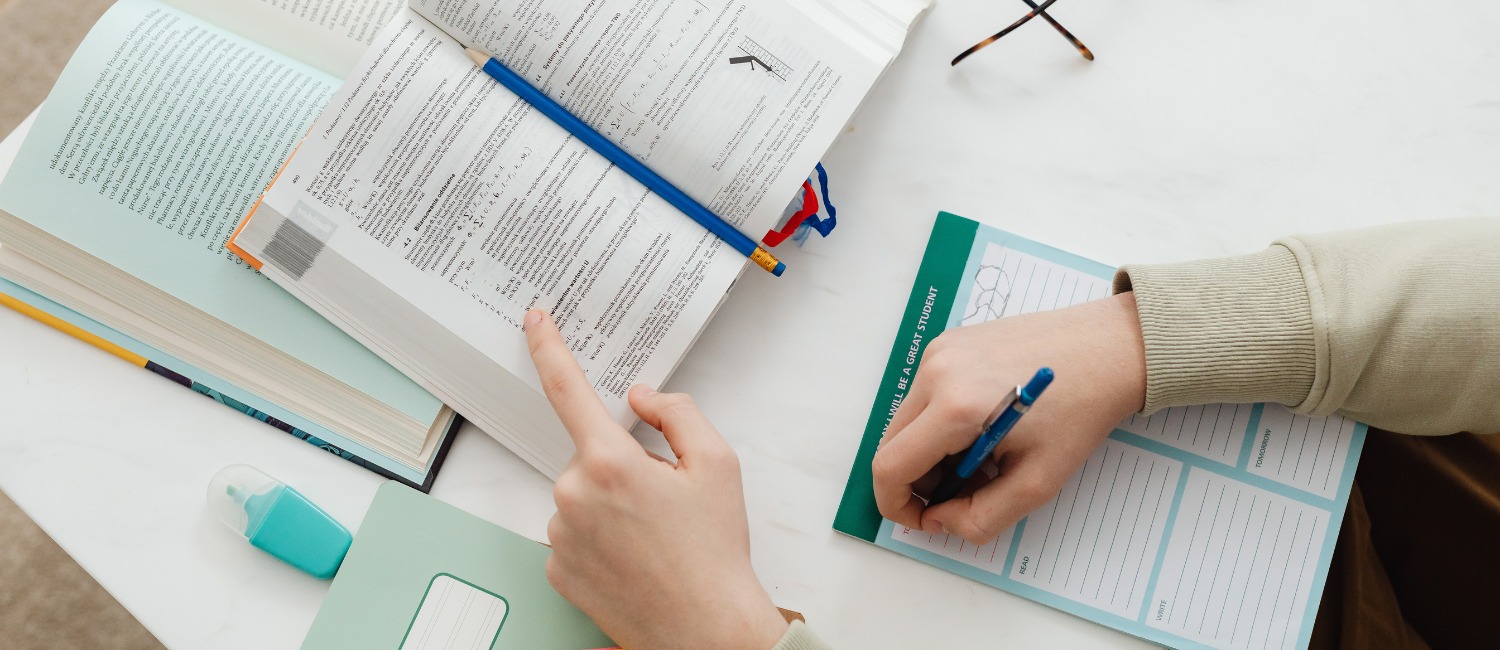How can I score good marks in exams? Don’t Worry – Here is the Guide
Exams. That one word is enough to turn any regular evening into a panic-driven study marathon. Whether you’re in Class 9, prepping for boards, or slogging through competitive exam prep, one thing’s common—everyone wants to know how to score good marks without losing their mind in the process.
Now, let me tell you something straight—I’ve worked with students and spoken to plenty of worried parents, and almost every time, their first question is: “How do I improve my child’s marks?” or “How can I focus better during study time?”
And trust me, the answer isn’t as dramatic as some coaching centres make it sound. You don’t need to study 14 hours a day. What you do need is a plan that works for you.
In this blog, I’ll walk you through practical strategies that have worked for hundreds of students to improve concentration, study smarter, and score better—without burning out.
Let’s try to understand it better
1. The “I’ll start tomorrow” trap
In my opinion, this is the most common mindset problem I see. You make a timetable, set big goals for the day, and then… push everything to tomorrow.
I think this mostly happens because the goal looks too big in your head. So here’s my simple advice: Don’t wait for the perfect moment. Just pick one topic and one hour. That’s it.
Forget the massive syllabus for a bit. Just get started. Today. Even if it’s just 20 minutes—it still counts.
Ask yourself: What’s one small thing I can complete today that will build momentum?
2. Keen Focus
What I’ve seen over and over again is that students think studying longer automatically means better marks. But in reality, how well you concentrate makes a bigger difference than how long you sit.
This brings us to a very common question I hear: How to improve concentration in studies?
According to me, this is where most students struggle—not with the syllabus, but with how distracted they get while studying.
Think of concentration like a muscle—it gets stronger with the right routine. The good news? Focus is a skill you can train. It just needs a few smart habits, not hours of forcing yourself to stare at books.
Let’s talk about what really helps.
3. Set up a clean, calm study space
I’ve observed that students who have a dedicated study space—one that’s neat, has good lighting, and is free of distractions—actually study better.
Phones? Out of sight. Notifications? Off. Apps like Forest or Focus Keeper can help.
It’s a small shift, but it signals your brain that “this is study time.” And once your brain gets into that mode, everything else gets easier.
Parents can play a big role here—helping set up a simple, clutter-free corner at home can make a surprising difference in how focused a child feels when they sit down to study.
4. Try the Pomodoro Technique
If you’ve asked me even once how to improve concentration in studies, I’ve probably told you about this method.
Here’s how it works:
Study for 25 minutes
Take a 5-minute break
Repeat 4 times
Then take a longer 15–20 minute break
I think it works because your brain doesn’t feel trapped in a never-ending session. Instead, you train your focus in small, manageable blocks. It’s like going to the gym—but for your attention span.
Parents can support this too—just knowing not to interrupt during those 25-minute focus blocks can help students stay in the zone.

5. Don’t just read—write
This is something I’ve been telling students for years: Reading is passive. Writing is active. Your brain holds on to things better when you process the information, not just glance over it.
Here’s what I usually suggest:
- Read the topic
- Close the book
- Try explaining it out loud (yes, even if you feel silly talking to a wall)
- Write down the key points in your own language
This simple cycle—read → close → recall → write—can seriously boost retention. It turns studying into an active workout for your memory, and it works far better than just rereading pages over and over.
6. Multitasking is a trap
You cannot text, scroll Instagram, listen to music, and still expect to “study efficiently.” Nope. That’s just fooling yourself.
What I’ve noticed is, most students who struggle with how to improve concentration in studies are usually trying to do five things at once. That’s the problem.
Just do one thing. One subject. One chapter. At one time. Simple. Effective.
Research from the American Psychological Association indicates that even brief mental blocks created by shifting between tasks can cost as much as 40 percent of someone’s productive time.
7. Sleep is not a luxury—it’s a tool
One thing I feel very strongly about is this: Stop sacrificing sleep to study more.
Sleep helps your brain consolidate what you’ve studied. If you pull an all-nighter, you’re not gaining time—you’re losing memory power. And no, caffeine doesn’t fix that.
I usually suggest 7–8 hours of sleep for students. You’ll wake up fresher, calmer, and much more ready to tackle those chapters.
One student I worked with improved their retention just by fixing their sleep—within a week, revision got easier, and they didn’t feel as overwhelmed before tests.
8. Break down the syllabus
I’ve heard this a lot: “Ma’am, there’s too much to study, I don’t know where to start!”
So here’s what I tell them: break your syllabus into weekly plans. Tackle the tougher topics first when your energy is high. Keep some buffer time for revision. And don’t be over-ambitious with daily targets.
What most students and parents tell me is that the syllabus feels less scary once it’s divided into smaller parts. And that’s when progress starts.
Want to make it even easier? Use a 3-week countdown calendar with subject targets—just like we build in our exam prep workshops. You can even create one on paper or use a simple spreadsheet. If you’d like a template, we can share a downloadable version too.
9. Move your body, clear your head
I guess this part surprises many students, but yes—physical movement can directly improve focus.
If you’re sitting for 4–5 hours straight, your brain is going to fog up. A short walk, 10 squats, or just stretching during breaks can really help you reset.
I feel this is one of the simplest answers to how to improve concentration in studies—just get the blood flowing.
Here’s a quick study break menu you can try between sessions:
- 15 jumping jacks
- Walk around your house for 5 minutes
- Do 10 slow squats
- Stretch your arms and back
- Try deep breathing with eyes closed for 2 minutes
Pick any one. It takes less than 5 minutes—and it works.
10. Read Previous Years Question Papers
What I have seen with many toppers is that they don’t just study theory—they practice it. A lot.
Solving past year question papers under timed conditions helps in two ways:
- You understand which areas need more attention
- You get used to the exam format (no surprises!)
In my opinion, this is the game-changer in the last month before exams. Theory gives you knowledge. Practice gives you confidence.
If you’re wondering where to start or how to tailor this to your strengths, we help students build personalized plans based on their learning style—making exam prep more focused and effective.

When Exam Is One Week Away
Okay, so you’ve followed a decent routine, covered most chapters, and now the exam is a week away. This is where a lot of students either burn out or lose track of time.
In my opinion, this week should not be about learning new topics unless it’s something super basic that you can wrap up in 30 minutes. The focus should be on recall and revision.
What I’ve seen with students who do well consistently is that their last week isn’t spent reading books—it’s spent testing their memory. Use flashcards, do quick oral revisions, write down answers from memory, and time yourself. Keep things active.
And yes, this is also the best time to fix your sleep cycle if it’s gone haywire.
Parents, your words can make a big difference this week. Encourage your child by reminding them how far they’ve come, and avoid adding pressure with comments like “You should study more” or “You must do better.” Instead, focus on keeping the atmosphere calm and supportive.
Dealing with Pre-Exam Anxiety
So here’s what I suggest: Stop studying by 9 PM. Take a hot shower, do some deep breathing, or listen to calming music. Lay out your admit card, stationery, and clothes for the next day.
On exam day – Keep your brain quiet
I think the best way to deal with anxiety is to remind yourself: “I don’t need to know everything. I just need to write what I know—clearly and confidently.”
Here are a few things I’ve seen help students right before the exam:
- Avoid people who keep quizzing you at the centre
- Don’t compare what you’ve studied with others
- Read the question paper slowly—don’t rush
And if your mind starts to panic, just pause. Take five deep breaths. That small reset can save your entire paper.
Before you start, try telling yourself: “I don’t need to get it perfect—I just need to do my best today.”
Last thing—Don’t let one exam define you
This is something I feel really strongly about. Marks matter, sure. But one low score doesn’t mean you’re “bad at studies.” It doesn’t mean you won’t do well later.
Work hard. Stay consistent. Ask for help when stuck. And more than anything, focus on learning how to improve concentration in studies, because that is a skill that’ll help you in every exam—not just now, but for years to come.
I think if you apply even half of these, you’ll notice real changes—not just in marks, but in how you feel while studying.
A low mark is a lesson, not a label.
Struggling with study pressure?
In Conclusion
If there’s one thing I’ve learned from years of guiding students and talking with anxious parents, it’s this: good marks don’t come from last-minute panic—they come from steady habits and clear thinking.
The students who do well aren’t always the ones who “study the hardest”—they’re the ones who’ve found ways to improve concentration in studies, stay consistent, and learn from their own patterns.
At NextMovez, we believe academic growth isn’t about pushing harder—it’s about studying smarter. If your child struggles to focus, feels unmotivated, or gets overwhelmed by revision, we’re here to help.
Want to build a personalized focus routine or get coaching support before your next exam? Reach out to us here—we’ll work together to create a plan that fits your child’s unique style.
All the best! And hey, you’re doing better than you think.






















